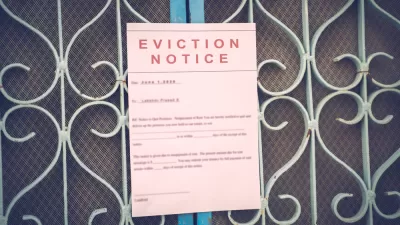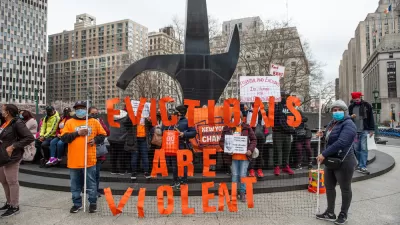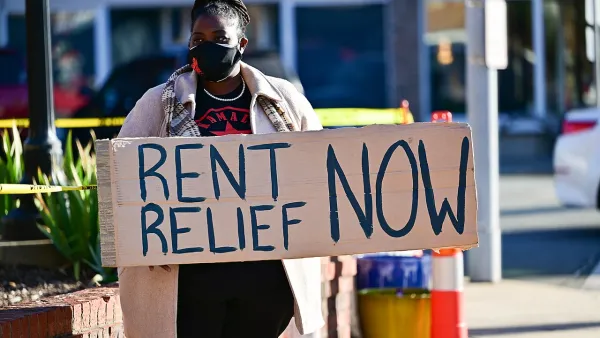The bill would have protected tenants from unfair evictions by requiring landlords to provide a reason for ending a lease.

A bill that would have strengthened protections for Connecticut renters failed to move forward in the state legislature again, reports Ginny Monk for the Connecticut Mirror.
House Bill 6889, which would have required landlords to provide a cause for eviction tenants, will not be put up for a vote. “The bill would have banned no-fault evictions, which typically occur at the end of a lease, in buildings with five or more units, after the tenant had been there for at least a year.”
Landlord groups opposed the bill on the grounds that it would make it too difficult to evict “problem” renters. “Speaker of the House Matt Ritter, D-Hartford, said he’d fielded concerns from lawmakers who feared that if new owners couldn’t evict renters, they wouldn’t be able to make renovations and rental housing would deteriorate.”
But tenant advocates say “this type of eviction may be used in retaliation when renters complain about housing conditions or to evict every resident of a building or complex when new ownership purchases the property.”
FULL STORY: No-fault evictions bill dies in CT legislature — again

Maui's Vacation Rental Debate Turns Ugly
Verbal attacks, misinformation campaigns and fistfights plague a high-stakes debate to convert thousands of vacation rentals into long-term housing.

Planetizen Federal Action Tracker
A weekly monitor of how Trump’s orders and actions are impacting planners and planning in America.

San Francisco Suspends Traffic Calming Amidst Record Deaths
Citing “a challenging fiscal landscape,” the city will cease the program on the heels of 42 traffic deaths, including 24 pedestrians.

Adaptive Reuse Will Create Housing in a Suburban Texas Strip Mall
A developer is reimagining a strip mall property as a mixed-use complex with housing and retail.

Study: Anti-Homelessness Laws Don’t Work
Research shows that punitive measures that criminalized unhoused people don’t help reduce homelessness.

In U.S., Urban Gondolas Face Uphill Battle
Cities in Latin America and Europe have embraced aerial transitways — AKA gondolas — as sustainable, convenient urban transport, especially in tricky geographies. American cities have yet to catch up.
Urban Design for Planners 1: Software Tools
This six-course series explores essential urban design concepts using open source software and equips planners with the tools they need to participate fully in the urban design process.
Planning for Universal Design
Learn the tools for implementing Universal Design in planning regulations.
Heyer Gruel & Associates PA
JM Goldson LLC
Custer County Colorado
City of Camden Redevelopment Agency
City of Astoria
Transportation Research & Education Center (TREC) at Portland State University
Jefferson Parish Government
Camden Redevelopment Agency
City of Claremont





























